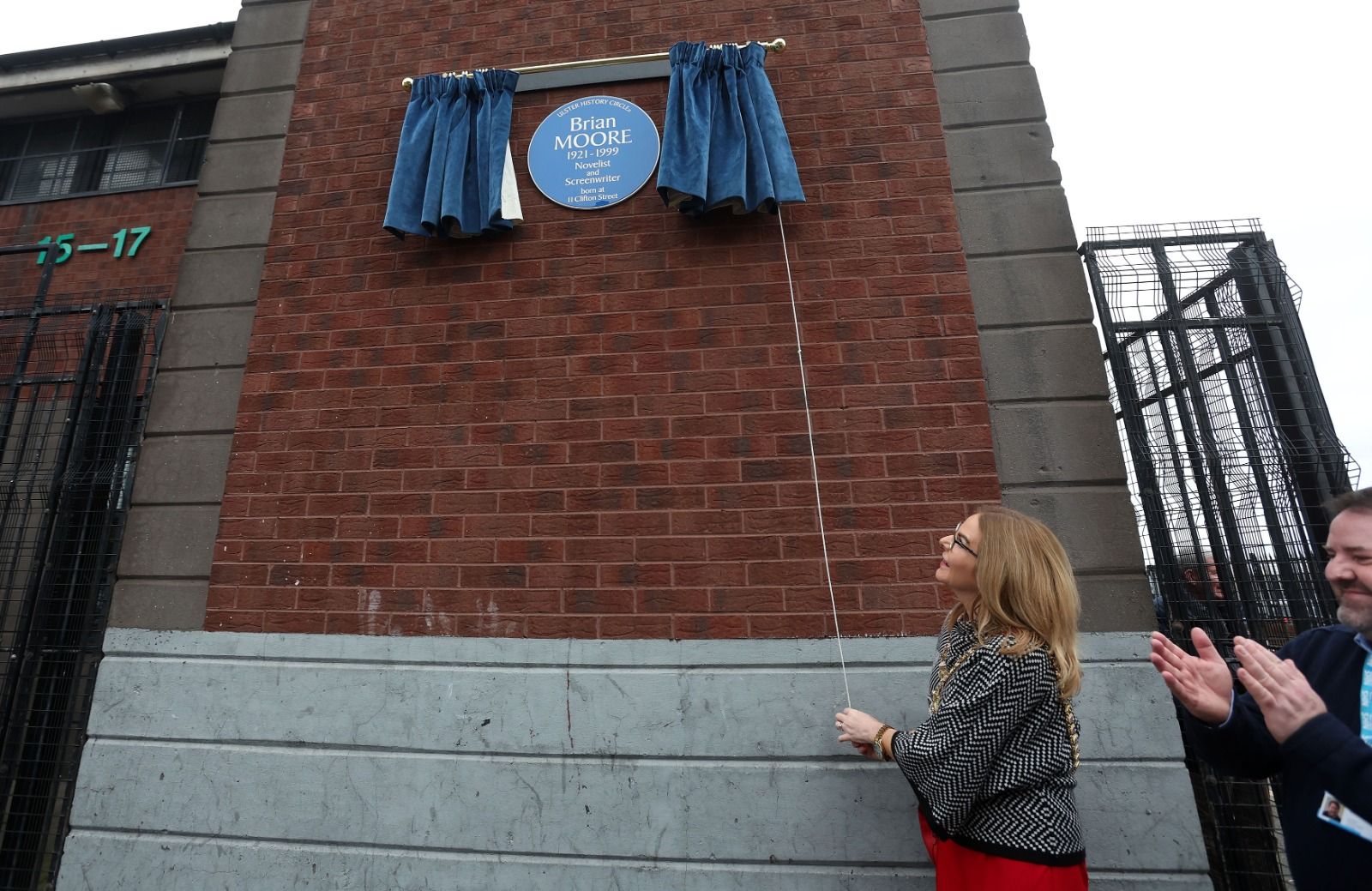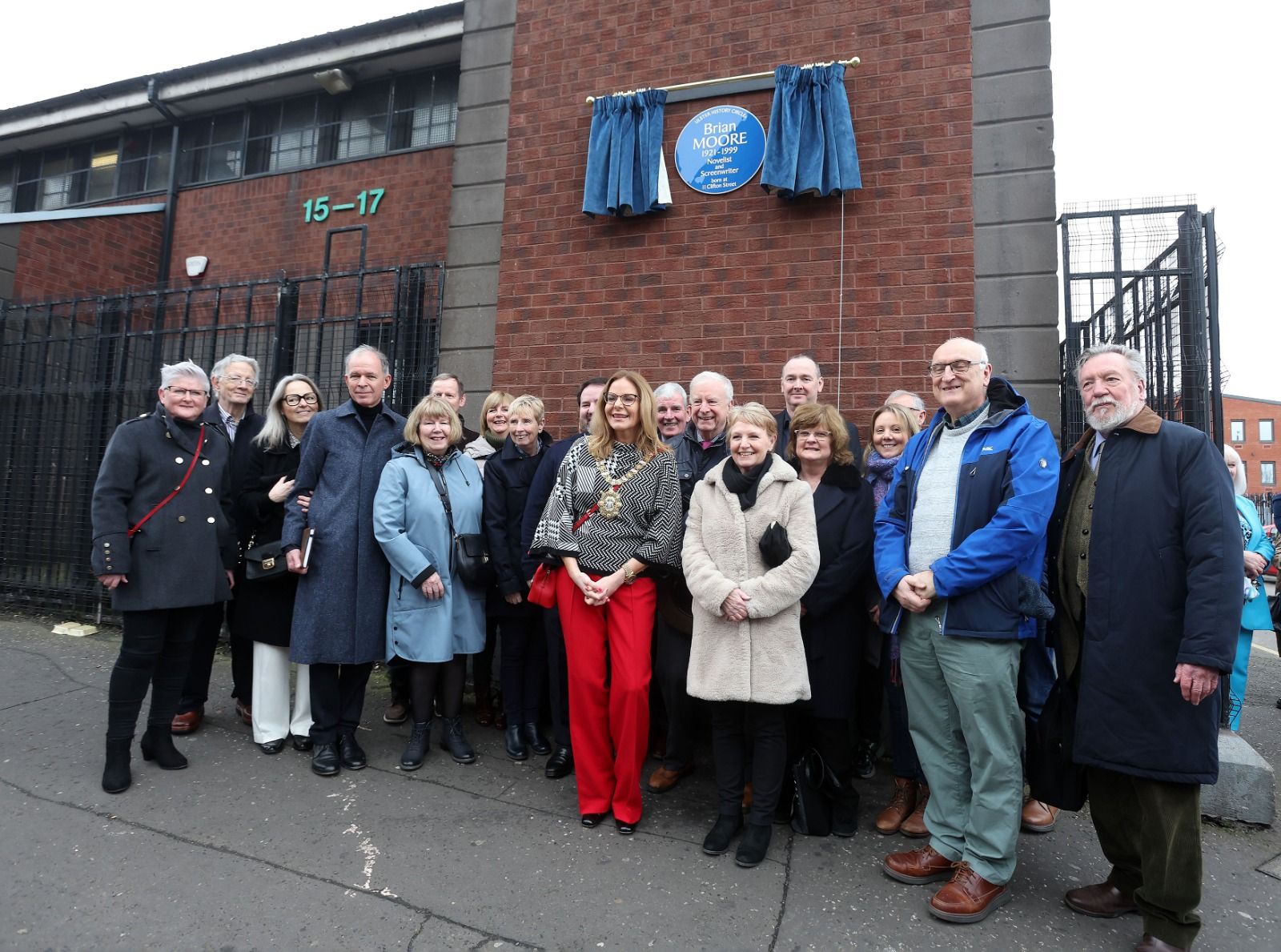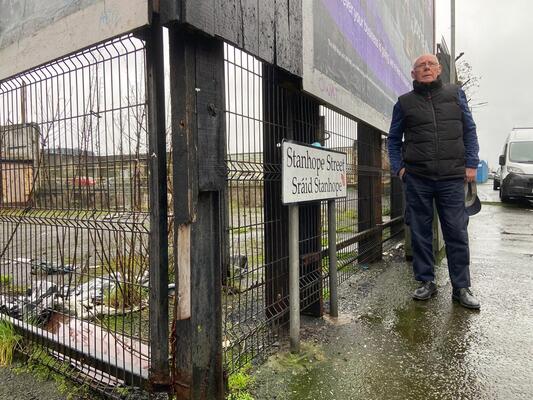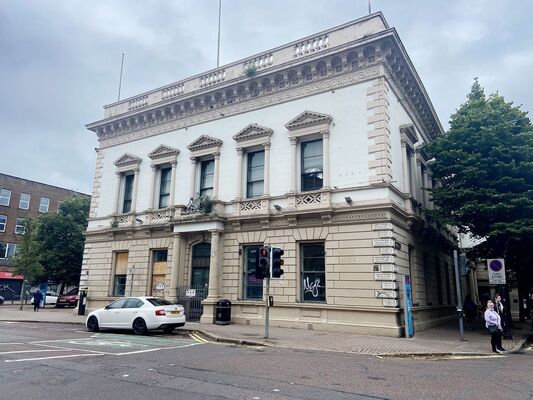A BLUE plaque has been erected in memory of the much-loved North Belfast novelist and screenwriter Brian Moore.
The plaque, which was unveiled by Lord Mayor Tina Black, is situated at the corner of Henry Place and Clifton Street near the writer's former home.
Brian Moore was born on August 25, 1921, at 11 Clifton Street. He was one of nine children born to prominent surgeon James Bernard Moore and his wife, Eileen McFadden, a nurse from Creeslough, Co Donegal.
Brian was educated at St Malachy’s College on the Antrim Road.
During the Second World War, he volunteered as an air raid warden before serving with the British Transport Division in North Africa, Italy and France.
He left Belfast in 1948 and travelled to Canada before finally settling in America.
Brian took with him strong memories of Belfast and by the time his first novel was published in 1955, he had turned to full time fiction writing. ‛The Lonely Passion of Judith Hearne’ remains among his most highly regarded work. Set in Belfast, the novel tells the story of an ageing, lonely spinster sinking towards emotional poverty.
The book brought Brian Moore to the attention of the literary world and the novel was made into a film in 1987 starring Dame Maggie Smith.

Brian was well-known for writing about many wide-ranging subjects with great ease and authority. An Irish critic once said of Moore, "No writer has captured Belfast as brilliantly as he did in his early novel."
He wove his memories of Belfast into the characters he created and by the time of his premature death in 199 he had written twenty critically acclaimed novels.
Books such as ‛Lies of Silence’ (his first thriller), ‛The Colour of Blood’, ‛The Emperor of Ice Cream’, ‛The Doctor’s Wife’, ‛The Magician’s Wife’, ‛Catholics’, ‛I am Mary Dunne’ and ‛The Temptation of Eileen Hughes’ won him an army of fans both in Ireland and elsewhere.
His novels were particularly admired for the empathy and depth of their characterization of the female protagonists and Moore is also acknowledged as a consummate storyteller.
He wrote the screenplay for Alfred Hitchcock’s 1966 film, ‛The Torn Curtain’ and the widely admired television film ‛Catholics’ based on his book of the same name. One of his last pieces of writing, ‛The Statement’, was a tense thriller.
During his lifetime, Brian Moore won many awards and accolades and was short-listed three times for the Booker Prize. In 1987, he was awarded an honorary doctorate from Queen’s University.
Brian never forgot his Irish roots, nor Belfast, the city of his birth, to which he returned frequently in person and in fiction.
Chris Spurr, Chairman of the Ulster History Circle, who erected the plaque in his memory, said: "Brian Moore is acclaimed as an outstanding Irish writer of the late twentieth century, renowned for his mastery of the contemporary novel.
"The Ulster History Circle is delighted to commemorate this distinguished novelist and screenwriter with a blue plaque, and the Circle is particularly grateful to Belfast City Council for their financial support and to Clifton Street Surgery and St Patrick’s Parish for their valued assistance.
"Brian Moore was a writer’s writer. He knew and understood the discipline required to be a great writer. He said of himself, 'Ever since I started writing, I have always made a living purely from writing.'
"He left a great literary legacy and the blue plaque will bring the name of Brian Moore to a new generation of readers."






